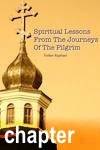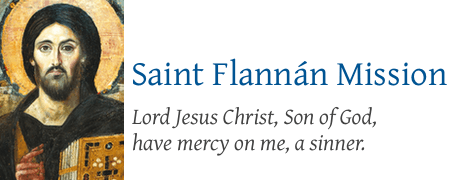 While we remember the importance of the mystery of reconciliation, how should we confess?
While we remember the importance of the mystery of reconciliation, how should we confess?
Dear beloved,
Saint John Cassian the Roman defined the eight evil vices, in the Philokalia, namely: Gluttony, luxury, avarice, wrath, sloth, negligence, vainglory and pride. The most important thing for us is to recognize these sins when they arise, whether in actions, or in our intent, and then to stop these sins and reconcile back to God by going to confession, the holy mystery of reconciliation.
The pilgrim wanted to partake the holy mystery of the Communion, and so, he needed to go to confession (St John 20:22-23). The pilgrim wrote down every single sin in great detail, and ended up with a long list. He traveled a few miles away to the Kitayev Hermitage in Kiev.
The elder at the Kitayev Hermitage looked at the long detailed list of the pilgrim, and gave some solemn advice on what a confession should NOT be.
1. One should not confess against sins that have previously been confessed and absolved by a priest, or it should imply a lack of faith on the mystery of reconciliation.
2. One should only confess sins relating to oneself, and never accuse others in one’s confession.
3. One should not detail sins too much, but only in very general terms, as forbidden by the Holy Fathers, because too much details may lead one and his confessor into temptation, since many sins are carnal and lustful in nature.
4. One should not repent with detachment, as if one is merely an observer to the sins, but must repent as one means it.
5. One should always remember the most important sins, that of not loving God, not loving our neighbors, not believe the Holy Scripture, and that one is filled with pride and greed. These are the fundamental sins that drive all other manners of sins and woes.
After that, the elder explained what true confession should be, and how such a confession would nurture humility in a person, by sharing his own confession with the pilgrim.
A. I do not love God. Because if I truly love God, I would think of God the whole day and not get tired, and would pray, obey and glorify Him the whole day with joy (St John 14:23).
B. I do not love my neighbors as myself. Because if I did, I would carry the burden of others’ worries, and take care of them as I would for my own burdens, and I would share in the joy of others as much as I rejoice in my own.
C. I have no faith in Holy Scripture. Because if I did, I would believe in the salvation Christ pointed us to through His Word, and in the caring for this life to prepare for our afterlife.
D. I am full of pride and greed. That is why I would boast of needless things to others, display however little I have to snub others, to defend my sins with excuses, and even do charity for the sake of praise or social standing. I am worshipping myself rather than God.
The pilgrim was so moved to shame, but so thankful to the elder at the hermitage.
Saint Maximus the Confessor said in the Philokalia, “Every genuine confession humbles the soul. When it takes the form of thanksgiving, it teaches the soul that it has been delivered by the grace of God.”
Much as the Jesus Prayer is a profession of our faith in Christ our Lord, it is also a confessional prayer. Let us pray:
“Lord Jesus Christ, Son of God, have mercy on me, a sinner.”
Book Index | Prev: Mysteries of Divine Will | Next: Penitent prayers
